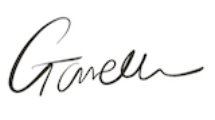A few years ago I had an “Aha!” moment when someone asked me if I’d like to be powerful or influential. Power is the overt and direct ability to control, like creating laws, directing an army or establishing authority. Influence is much more subtle. It is the ability to persuade, manifest and effect change. While the former comes with outward displays of might and agency, the latter is understated, and in point of fact, just as effective.
“Influencer Marketing” is the new promised land in brand marketing and advertising – everyone is talking about it. Influence is now more desirable than power, and thanks to social media and the Internet, it can now be bought, sold and measured. In case you’re new to this, or you just woke up from a coma that started in 1996, read that again. To some people, especially those who have been paying attention for the last 6 years, this is very banal.
Here’s something less people are aware of: Social media goes very well with audio. In fact, you could argue that influencer marketing, in any modern sense, evolved from radio.
In the early days of radio; the right voice artist, DJ or radio presenter could catapult a new product to overnight success, and the enormous influence these personalities had could make or break a brand. Do you know why we call The Bold And The Beautiful a SOAP opera? The term soap opera came from the fact that popular detergent brands used to sponsor the radio dramas of the 1930s, and hence they became known as soap operas. I remember John Berks talking about Velamints on 702 in the 90s, and I made my mother stop at the shops so I could buy some.
Think about your day. When do you have time to think? To learn? To pay attention to new things? Considering how much time people spent in traffic, the radio presenter could connect with you for a long time, and hold your attention while the only other thing you were doing was driving. The same goes for gym, going for a run or cooking dinner. These daily activities were often accompanied by radio, or more recently, by podcasts, audiobooks and curated playlists. Considering the level of attention you could command from these listeners, your influence might be astonishing. Social media does a similar thing: The people you have chosen to follow on Twitter, Instagram and Facebook have a disproportionate and powerful influence on your world view. That’s what marketers want access to, and they’re willing to pay to get it.
The most followed people on Twitter and Instagram are musicians, actors, entertainers and institutions. Only rarely do politicians, academics, businesspeople and brands wield the influence they once did through advertising, propaganda, publications and media. There’s no need for the middle-man anymore. Everyone on earth can now connect directly to the person, brand or idea they care about. I often remind audiences that each person in them is now an influencer, but that comes with a caveat – credibility. Before you can buy or sell influence you have to establish yourself in some public sense – people need to know who you are, what you stand for and why you might add value to their life. That’s the hardest part of becoming an influencer – and you might have to start by carving out the tiniest niche before you can make a big difference.
I chose influence, and I think you might too.

